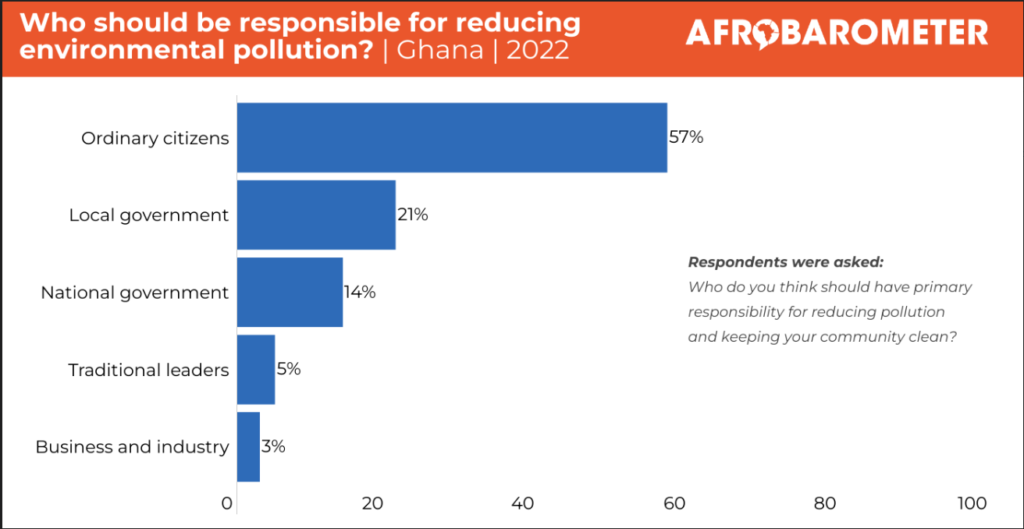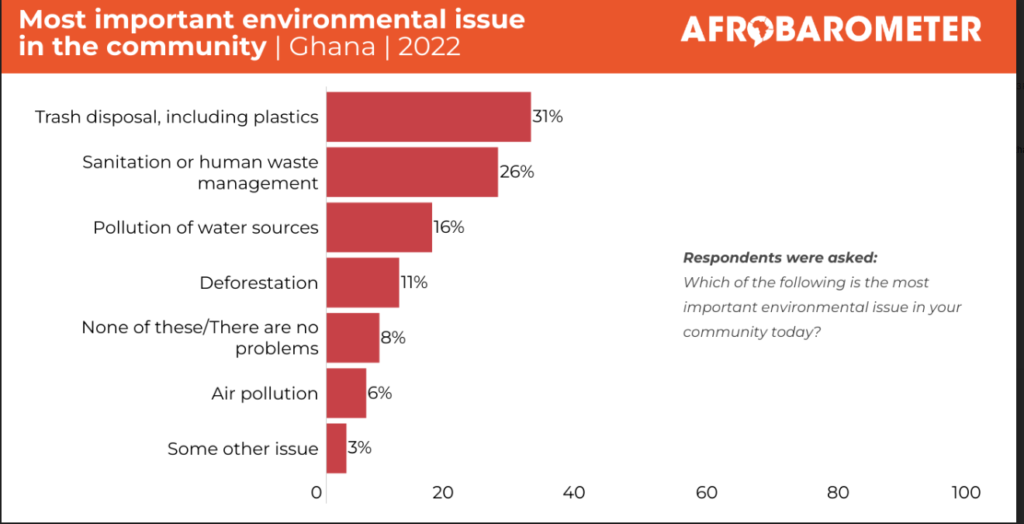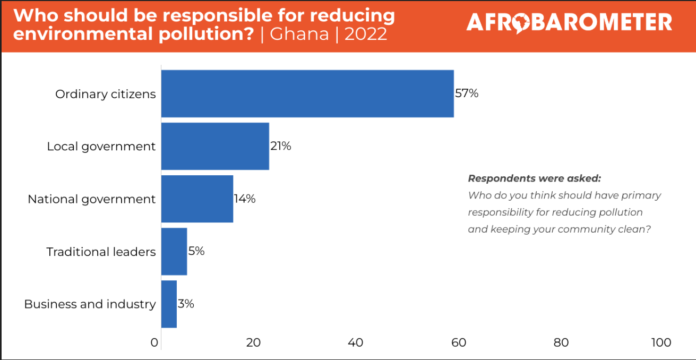Ghana, a nation known for its rich natural resources and vibrant culture, is facing a pressing environmental challenge.
According to the latest Afrobarometer survey conducted by the Ghana Center for Democratic Development, Ghanaians are increasingly looking to both ordinary citizens and the government to take responsibility for reducing pollution and safeguarding the environment.
Pollution is a matter of serious concern for the majority of Ghanaians, with nearly two-thirds (64%) of respondents considering it a “somewhat serious” or “very serious” problem in their communities.
The survey identified trash disposal, sanitation, and water pollution as the most critical environmental issues affecting the daily lives of citizens.
Notably, plastic bags were identified as a major source of pollution by a significant 81% of respondents.
When it comes to addressing these environmental challenges, Ghanaians believe that the responsibility falls primarily on local citizens.
Approximately 57% of respondents stated that it is the duty of ordinary individuals to reduce pollution and maintain cleanliness in their communities.
In contrast, fewer respondents placed the responsibility on local (21%) or national (14%) government bodies.

However, the survey also revealed a sense of disappointment among Ghanaians regarding the government’s performance in tackling pollution and protecting the environment.
Only 29% of respondents believed that the government is doing a good job, while a significant majority of 66% expressed dissatisfaction with the government’s efforts in this regard.
The findings of the Afrobarometer survey highlight the urgent need for collective action and greater government intervention to address environmental concerns in Ghana.
Citizens are looking to one another and the government to work collaboratively to find sustainable solutions.
The responsibility for waste management, pollution control, and environmental protection should be shared between citizens and the government to achieve tangible results.
Environmental organizations and activists in Ghana have long been advocating for stronger regulations, public awareness campaigns, and investment in infrastructure to combat pollution and protect the country’s natural resources.

This survey reinforces the need for these measures and emphasizes the importance of effective waste management, improved sanitation systems, and stricter regulations on plastic bag usage.
As Ghana moves forward, it is crucial for all stakeholders to recognize their roles and work towards a cleaner and greener future.
By promoting a culture of environmental responsibility, fostering public-private partnerships, and implementing sustainable practices, Ghana can take significant strides towards preserving its natural beauty and ensuring a healthier environment for future generations.
Afrobarometer surveys continue to provide valuable insights into the opinions and concerns of Ghanaians, helping policymakers, environmental organizations, and the public at large to better understand the issues and take appropriate action.


